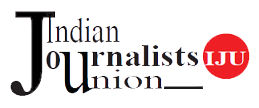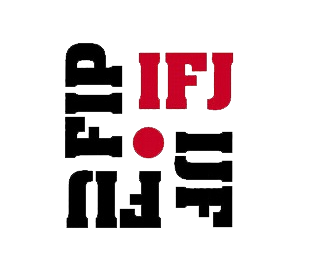~ Geetartha Pathak
While United Nations and its wings are dealing with the problem of statelessness across the world and have taken initiatives to reduce statelessness and to preserve the rights of the stateless people worldwide, the actions of some of the governments in South Asia have exacerbated the problem. genocide in Rakhine state, home of Rohingya in Myanmar, communal violence, ethnic conflicts and political unrest in some of the South Asian countries have made many people stateless. The most vulnerable groups in South Asia are Tamils in Sri Lanka, Bhutanese in Nepal, Biharis in Bangladesh and Rohingyas of Myanmar.
In India resurgence of far right groups has further made the situation complicated by dividing the society on religious and caste identity. BJP President Amit Shah's statement of 100 crore illegally infiltrated Bangladeshi eating up India like termite corroborates the above observations. The ruling party at the centre and the Sangh Parivar are propagating that the Muslims in India are alien and to prove the idea they are trying to rewrite history, rename places and roads. while the world community is striving to bring down statelessness the ruling party here is promoting statelessness by alienating minorities.
Through a series of resolutions beginning in 1995, the UN general assembly gave United Nation's High Commissioners for Refugees (UNHCR) the formal mandate, to prevent and reduce statelessness around the world as well as to protect the rights of stateless people. Twenty years earlier, the Assembly asked UNHCR to provide assistance to individuals under the 1961 Convention on the Reduction of Statelessness.
The recent exercise of preparation of an updated National Registration of Citizenship (NRC) in Indian state of Assam under the direction of Supreme Court of India in its first draft publication has almost rendered 40 lakhs people stateless. The apex court's order for preparation of an updated NRC came while it was hearing a case filed by a non- governmental organization which pleaded that lakhs of names of illegal Bangladeshi immigrants were included in the voters’ lists of Assam. The Assam agitation was started in 1980 in a similar way with complaint of inclusion on names of illegal migrants in the voter's list of Mangaldoi constituency of Assam.
Now half of the employees of the Assam government are engaged in the voluminous task of preparing the updated NRC spending 1200 crore of rupees. The issue of illegal Bangladeshi infiltrator is doing rounds since last 38 years in Assam. The politicians and the leader of the rightist organisations deliberately place in media exaggerated statistics of number of illegal Muslim Bangladeshi migrants to suit their agenda. barring a few media however seldom analyse these statistics and claims provided by the politicians and other leaders and solicits views from the other sides.
An analysis of the census data on the decadal increase of population of Muslims in Assam shows no extraordinary growth of Muslims in Assam. Now some of the leaders of BJP and Sangh Parivar are pleading for preparation of NRC for all of the states of India. Even if some people have infiltrated in the state after the cut off year for Assam i.e.1971 and have illegally settled in the state it is difficult to expel him after 47 years.
If government of India wants to reduce statelessness respecting the international Conventions and UNHCR's guidelines it may consider granting citizenship to them in a phased manner. UNHCR provides legal advice to governments about how to ensure their nationality laws are compliant with international standards, including those set out in the 1961 Convention on the Reduction of Statelessness and relevant human rights treaties. Without seeking any such advice from UNHCR the centre has moved to grant citizenship to the Hindu immigrants from Bngladesh by bringing the Citizenship (Amendment) Act, 1955. The Oppositions have criticized such move as a part of communal agenda of the ruling party.
Many consider statelessness a human right issue. Indeed sufferings of innocent people for apathy of the state or society are clearly human right violation. The contemporary human rights framework is premised on notions of equality, liberty, dignity and universality: we all hold basic rights because we are human beings. but the human rights system also recognises that states may reserve some rights for their citizens, such as the right to vote or be elected, placing these out of reach for stateless people. And in practice, statelessness is a proven barrier to the exercise a wide range of other rights. So the very universality of human rights rests on the premise that everyone enjoys a nationality laid down, for that reason, as a right in most major human rights instruments.
United Nation's Commission on Human Rights' also created in 1947, a sub-commission on 'Freedom of Information and of the Press' to report to the 'Commission on Human Rights' on what rights, obligations and practices should constitute the freedom of information. This necessarily had to be juxtaposed with the human rights. The media can play an important role in creating awareness of the concept of human rights that would constitute the right of every individual to his fundamental freedom without distinction as to race, sex, language or religion.
Media should not allow anyone to use its platform for propagation of divisive agenda and its priority focus should be humanity. A vigilant media can save the society from further division on the basis of race, religion or caste, which is need of the hour. Media of Southeast Asia should be stakeholder of UNHCR initiative of eradicating statelessness across the region.



